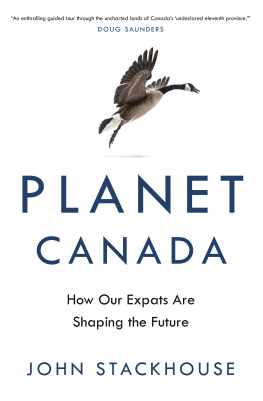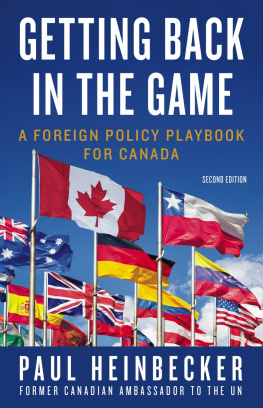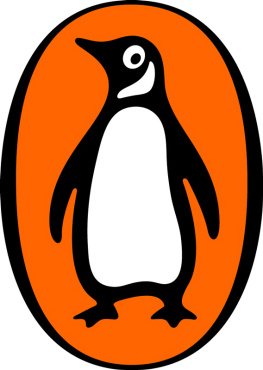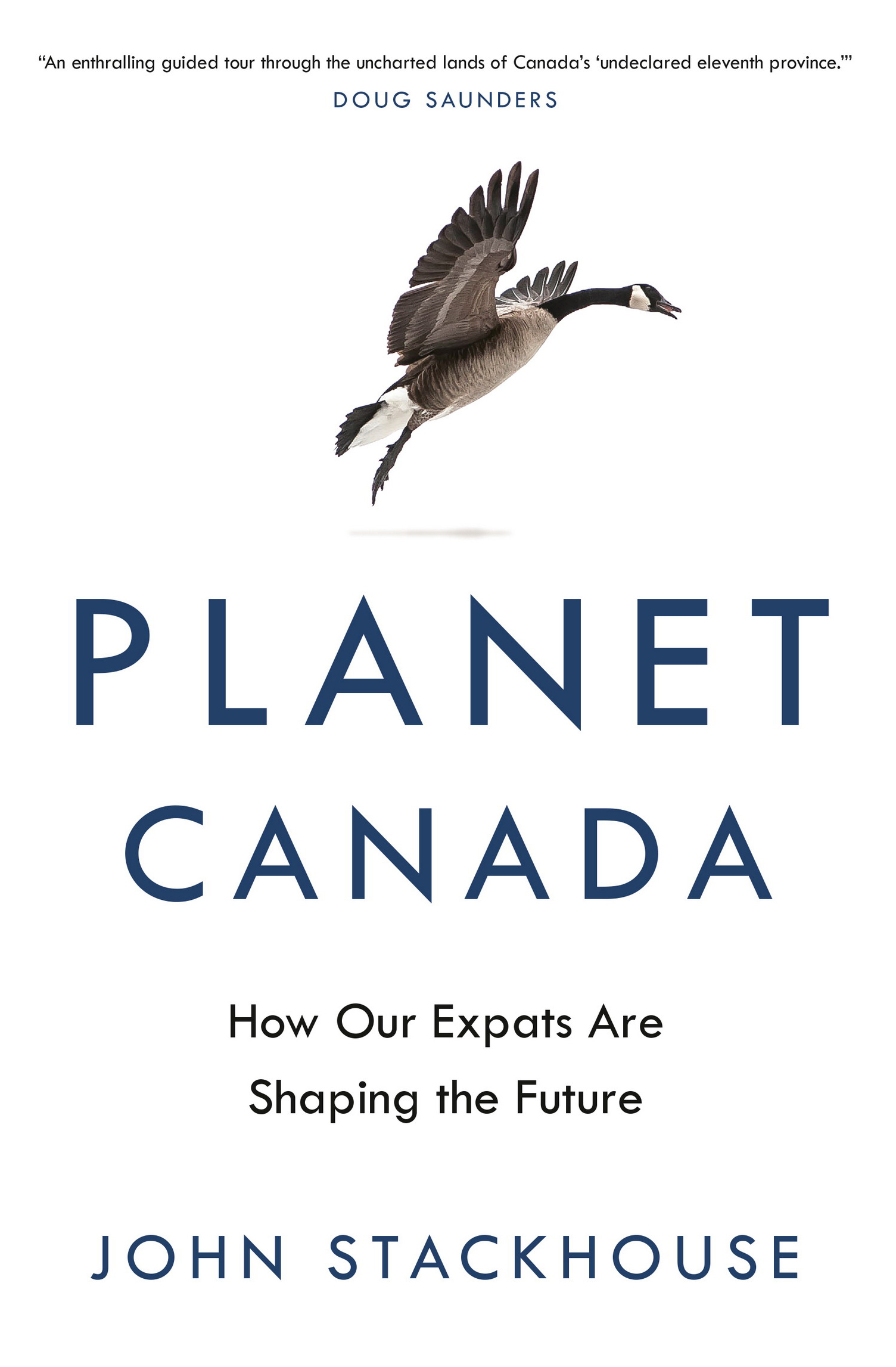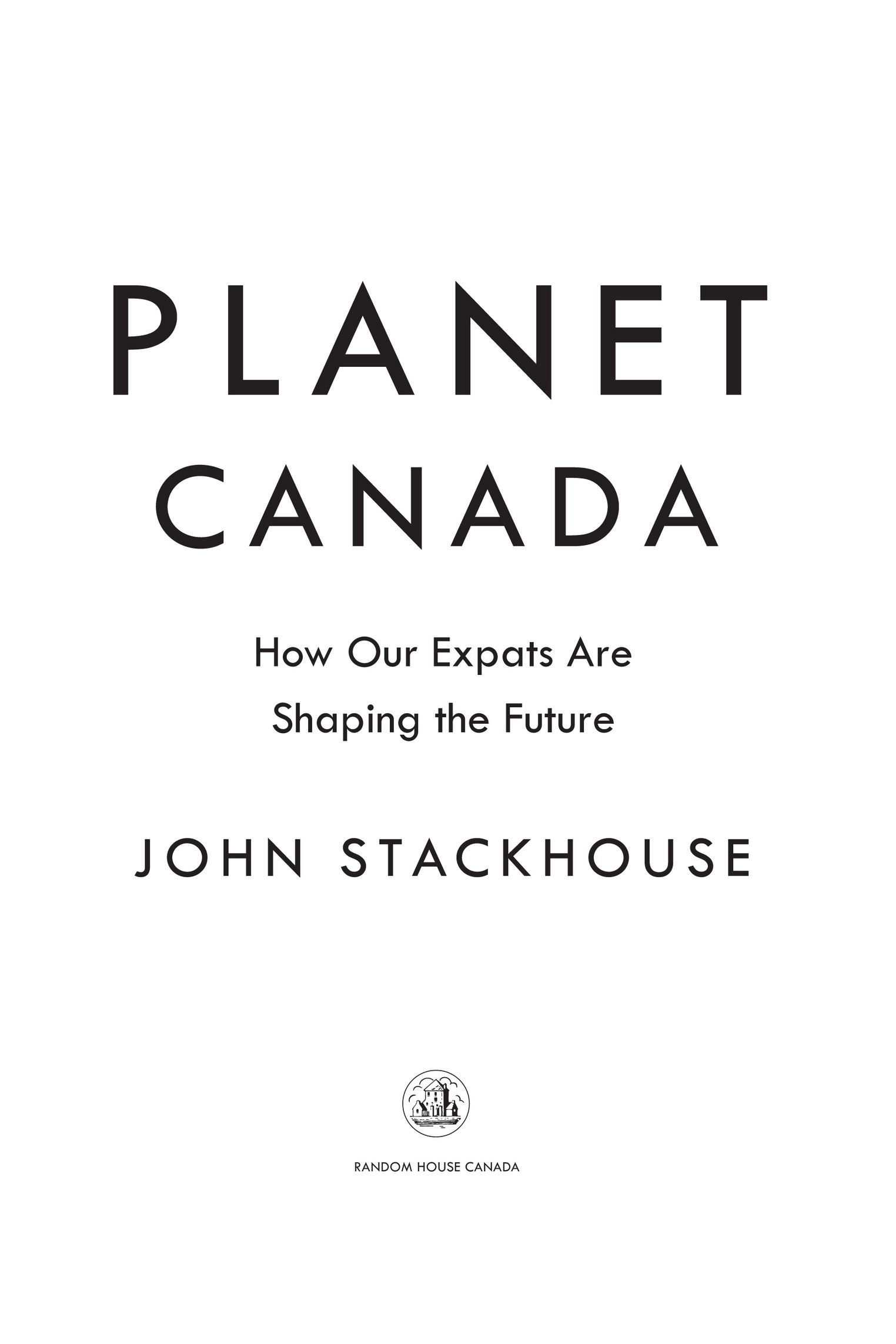All rights reserved under International and Pan-American Copyright Conventions. No part of this book may be reproduced in any form or by any electronic or mechanical means, including information storage and retrieval systems, without permission in writing from the publisher, except by a reviewer, who may quote brief passages in a review. Published in 2020 by Random House Canada, a division of Penguin Random House Canada Limited, Toronto. Distributed in Canada and the United States of America by Penguin Random House Canada Limited, Toronto.
Random House Canada and colophon are registered trademarks.
Title: Planet Canada : why our expats are the key to our future and the world's / John Stackhouse.
Names: Stackhouse, John, 1962- author.
Description: Includes bibliographical references.
Identifiers: Canadiana (print) 20190232889 | Canadiana (ebook) 20190232897 | ISBN 9780345815804 (hardcover) | ISBN 9780345815828 (HTML)
Subjects: LCSH: CanadiansForeign countries. | LCSH: Cultural diplomacyCanada. | LCSH: CanadaRelations.
Introduction | The Eleventh Province
As I neared the end of a sweeping tour of modern Canadian history, I was met by a lone display meant to sum up our countrys place in the world. It was a backpack. A rumpled one, from the 1980s, emblazoned with a maple leaf. Next to it, encased in Plexiglas, was a Canadian passport, and with it a heartwarming, if slightly syrupy, message about the maple leaf and how its become, to the world, a symbol that reflects positively and warmly on the Canadian wearing it.
The Canadian Museum of History in Gatineau, Quebec, across the Ottawa River from Parliament Hill, had placed the display at the end of an interactive tour of domestic events and achievements, as a way of showcasing some of the personal tethers we have beyond our borders. It struck me as a kind of gentle ode to the Canadian globetrotternot the heroic peacekeepers, or celebrated astronauts, or movie stars on Hollywoods Walk of Fame, but the ordinary Canadians who set out to attempt some extraordinary things. There are plenty of them, certainly, who can be spotted almost anywhere by the Roots hat, Lulu sweatshirt and MEC bag embroidered with a little red flag. But after 150 years as a nation, I had to wonder, is this really how we see ourselves in the world? A nation of loveable backpackers?
Like Sean Mannion, the owner of the two items on display, I had travelled through Asia in the 1980s, as proud of the maple leaf on my backpack as I was protective of my Canadian passport. So I was struck by a photograph within the display that showed Mannion, in 1983, standing with two Americans he had met in Fiordland National Park, New Zealand. It projected that boundless, rugged affability the world sees in us, and we seem to assume is our national trait. But I figured there had to be more to hima bit like Canadas place in the worldand decided to track him down. Mannion still lived in the Ottawa region, not far from the museum or where he was raised. He had grown up by the river, becoming a whitewater guide, a skill that would take him to New Zealand and then Nepal, India, Guatemala, Mexico and the western United States. In those days, when he was hitchhiking between rivers, he learned the maple leaf was his best ticket. People everywhere, he discovered, loved Canadians. They loved our sense of community, our respect for other cultures and our collective humility, which you can hear in Mannions voice when he says son of a gun and where the heck. They open their doors to us because, as a country, weve opened our doors to them. As the museum display states, in an uncharacteristic burst of immodesty, Canada is one of the worlds most admired countries. Its reputation and public image reflect stability and compassion, natural beauty and political freedom. It is an extraordinary work in progress.
Unfortunately, in the decades since Mannion traipsed around Asia, a lot has changed. Our middle power status has eroded, leaving us to feel a bit like those kids in the middle row of a class picture. Necessary, nice and unnoticed. Were no longer the go-to nation for peacekeeping, or the reliable friend of foreign aid. On trade, weve been pushed around by the big kids in the back row of that class picture, while in business weve lost far more global head offices than weve built. But in that same period, something equally remarkable has happened. While Canadas share of global everythingGDP, defence, aid, R&Dhas declined, our share of expat influence has grown. Theyve traded backpacks for briefcases and have started to shape the world and our place in it. In an age of communities and networks, powered by individuals more than states, theyve become Planet Canada. These are the Canadians who arent just visiting. Theyre living, working, studying and connecting abroad, increasingly as a diaspora. Some are well-known, like Mark Carney, formerly of the Bank of England and now leading the fight against climate change, or Lorne Michaels of Saturday Night Live, or Rachel McAdams of Hollywood fame. But most of Canadas two million or so expatriates are known only in their own circles. Theyre Canadians, usually by birth, always by passport and often by association, but theyre forgotten to Canada in terms of spirit and impact.
When I first went overseas in the 1980s, Canada was the model of abundance in a world shaped by scarcity. Like Australia, and a few others, we were the land of plenty, with educated people and prolific resources, along with the peace and prosperity that were so lacking elsewhere.
Sadly, we may be the only major countryor minor one, for that matterthat doesnt think strategically about its diaspora. We should start by recognizing that we have one, and reaching out to them, which is what our closest allies and rivals are doing with theirs. From Ireland to India, nations with global populations are increasingly turning to their diasporas for help, recognizing the decades ahead will be influenced by people networks more than power centres.
I first began to appreciate our global population in the 1990s, when I became part of it as an overseas correspondent for the Globe and Mail, based in New Delhi. Over nearly eight years living and working abroad, pretty much everywhere I went there were Canadians forging interesting and important paths. Some were civic builders, designing a university course in Nairobi or engineering a pipeline across central Asia. Some were lone wolves, running trading operations in Jaffna or Kinshasa. Some were up to no good, like the Bre-X geologists in Indonesia or the Khadr family, whom I traced across northern Pakistan before 9/11. I knew most Canadians had always been seen, and welcomed, as good global citizens. But in that brief window between the Cold War and the War on Terror, as every corner of the world opened up, some peacefully, some through violence, it was evident that many CanadiansLouise Arbour, Stephen Lewis, Sergio Marchionnewere doing more than just going along. They were stepping to the forefront, to lead in ways that perhaps our country no longer could.

